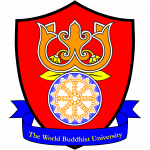Distinguished speakers & Presentations
MEDIAs for the Event
The governments of the world acting as the General Assembly of the United Nations have adopted 17 goals for global Sustainable Development (SDGs). These goals seek the same results for humanity as does Buddhism but they are not designed to take advantage of personal mindfulness. Importantly, they can be more fully implemented from day-to-day by use of such mindfulness as they do not provide guidance as to the frame of mind most conducive for making decisions in the economy, in business, in politics and governance, in society, in culture, in our personal lives. Thus, using Buddhist insights can greatly help implementation of the SDGs.
Objectives of the Conference
The immediate objectives of the Conference is to bring together leading academics, Academia, government policy makers, Buddhist leaders as well as relevant stakeholders in an open dialogue to discuss the issues and set directions for a publication of the Buddhist Path of Sustainable Development Goals. Specifically, the Conference is intended to:
- To celebrate would be 91st birthday of the Late King Bhumibol Adulyadej
- To celebrate the 105th birthday anniversary of the Late His Holiness Somdet Phra Nyanasamvara, the 19th Supreme Patriarch of Thailand.
- To find a new understating on a Buddhist Path to Sustainable Development Goals.
- To urge Buddhist institutions, organizations and networks to brainstorm on the subject as a Buddhist contribution to the world.
- To develop scholarly knowledge of Buddhism to apply to the world.
- To implement the policies of WBU and the WFB regarding to the exchange of knowledge and information with learned institutions.
- To broaden academic network of WBU to many different countries.
- To exchange ideas and experiences among fellows of both within and outside members of WBU.



































